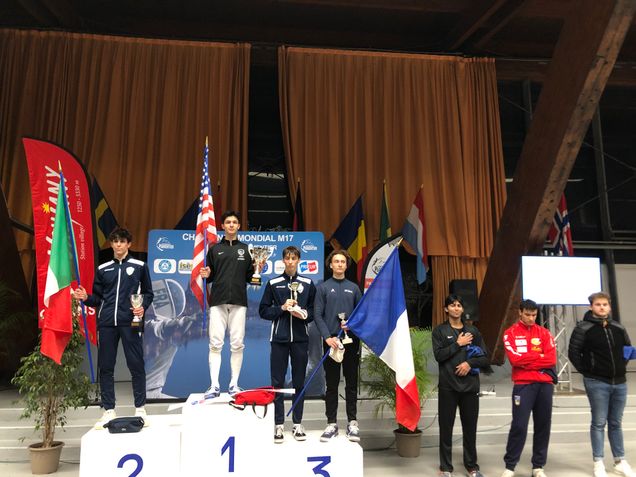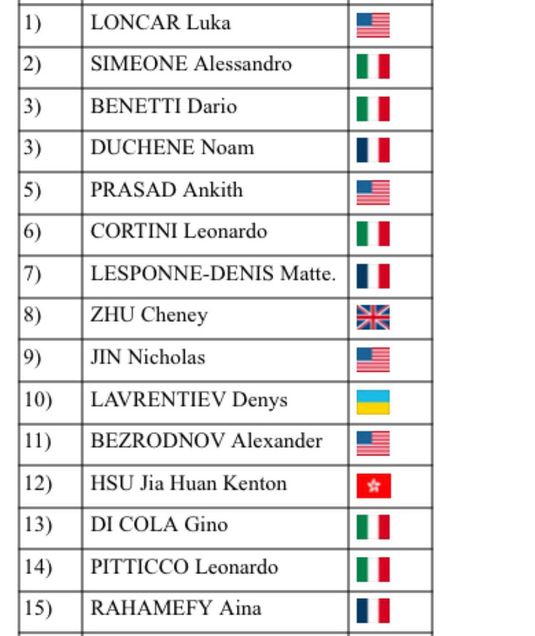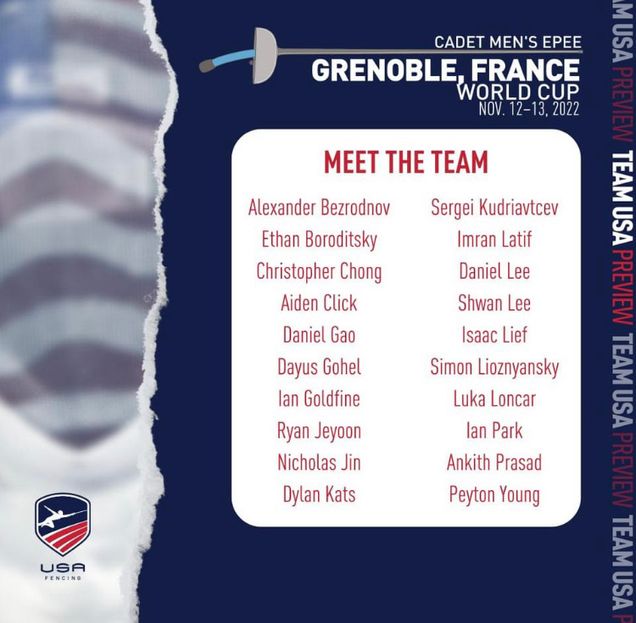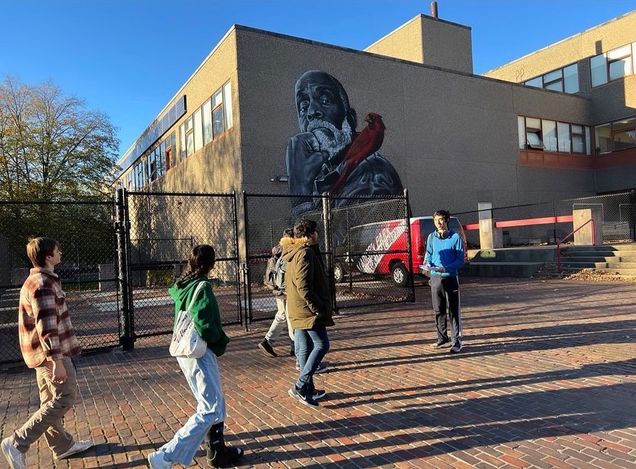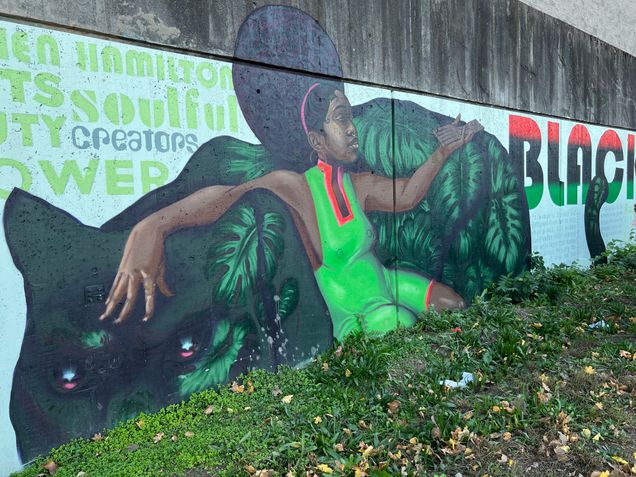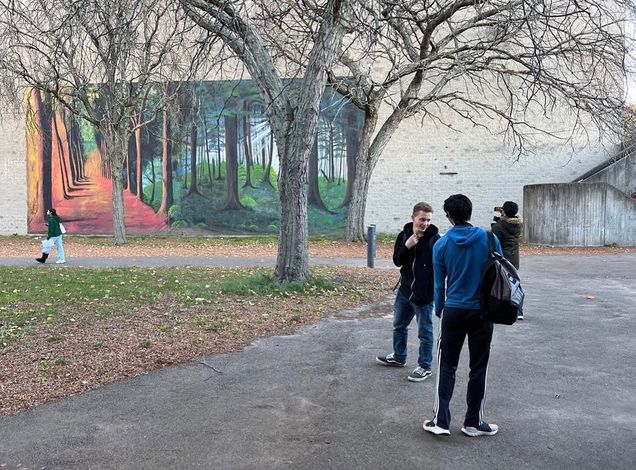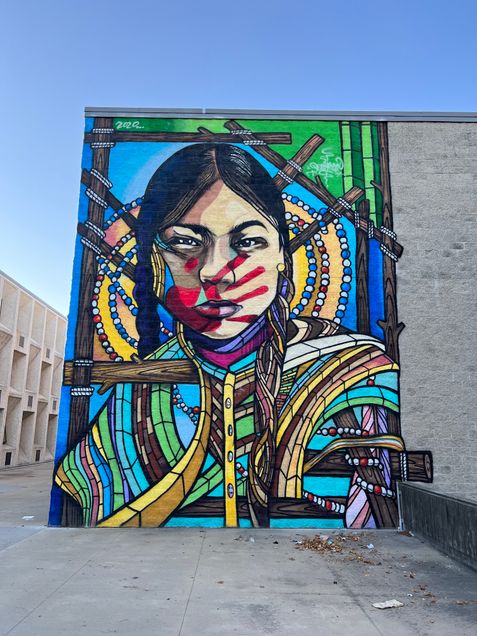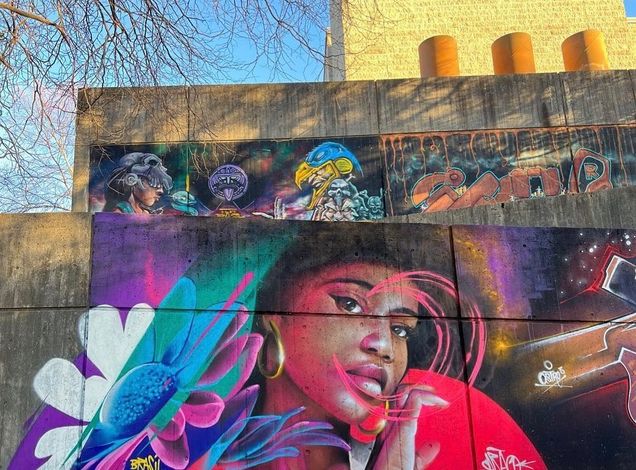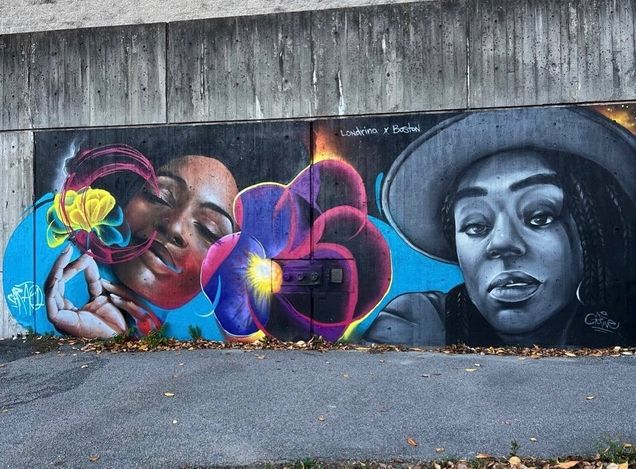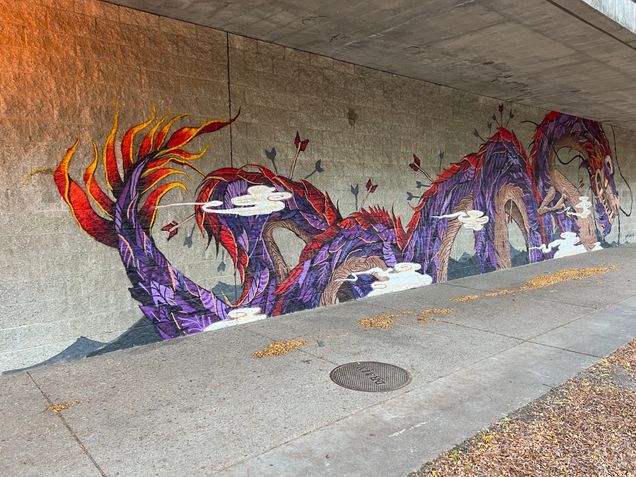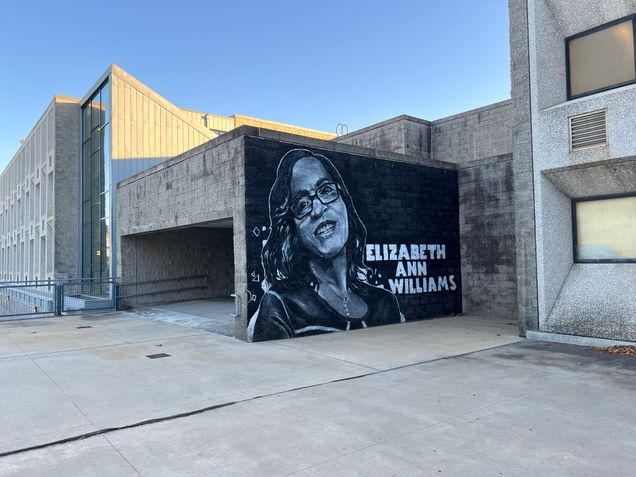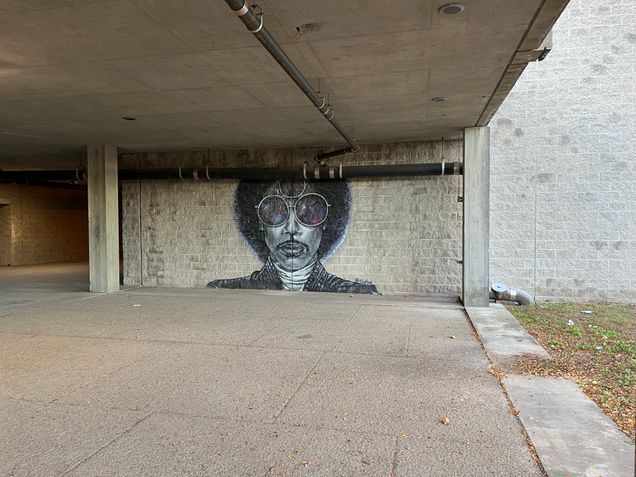News
The Importance of Student-Led Discussions in a Post-Truth Age
It has been a fun week, despite the messy weather. On Tuesday afternoon, the students eeked out a narrow victory against the faculty and staff in a spirited basketball extravaganza, complete with a halftime show! Tonight many students will stay on campus for the semiformal dance. And with spring break around the corner, spirits are high.
I visited two history classes earlier this week and, in both, observed students speaking much more than their teachers. Juniors in American history were discussing our country’s overseas entanglements and imperialism in the late 19th and early 20th century. Ninth graders were discussing the Etruscans, Greeks, and Phoenicians and contrasting the historical record of those civilizations with the contemporary Roman accounts. Active, student-led discussions have long been a hallmark of what we do, particularly in the humanities. Teachers, as the experts in the room, frame up interesting questions and periodically enter the conversation to offer a perspective that the students may be missing. Of course they do and they should; we have deeply knowledgeable teachers who can draw connections our students can’t and inspire these young people around the table. But it is largely up to the students to test their ideas against their classmates and assess the strength of their peers’ arguments.
This approach has never been more important. Consider the sheer number of opinions and (sometimes false) narratives our students encounter every day on television and social media. The days of Walter Cronkite as the grandfatherly and neutral arbiter of what is important and true are long past. It is up to all of us to make those determinations for ourselves, and this will be even more true in the years to come. I’m proud of our teachers for doing their part to prepare students for that future.
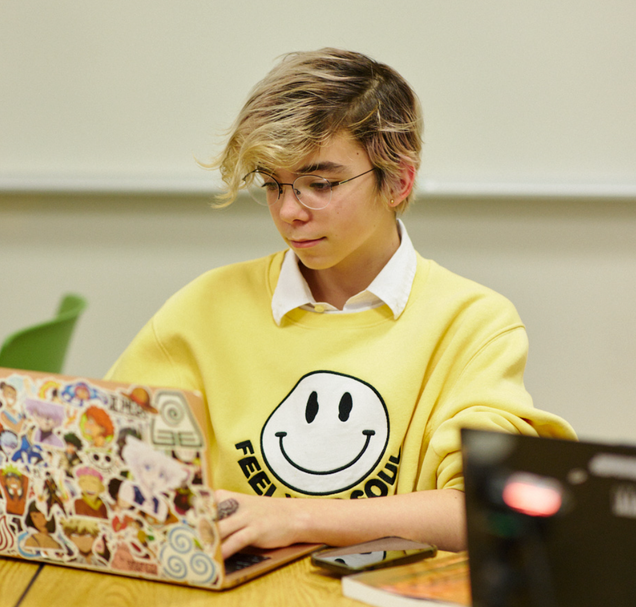
Joyful Learning and Shakespearean Knock Knock Jokes
In a funny scene in Act II of The Tragedy of Macbeth, a drunken porter responds to a repeated “knock, knock, knock” at the door to the castle imagining that he is greeting sinners at the gates of hell. I visited a ninth-grade English class earlier this week where students were acting out that scene for their classmates. With a wonderfully convincing and slurred Scottish accent, a student played the porter’s role to the amusement of the whole room; he was the only one not laughing! What struck me most was that the students were laughing along with the jokes in the way Shakespeare intended – delighting in the imagery, linguistic tricks, and performance.
How lucky are we to be at a school where we all – teachers and students – find so much joy in learning? I imagine that for some of us reading Shakespeare in high school felt like an intimidating chore or a struggle in translation. For these students, it was fun. That joyful approach to learning – fostered by the teacher and amplified by the students – paves the way for deep engagement and real understanding. I see it all around, across disciplines. I feel grateful to be at a place where joy travels hand in hand with learning and a deep sense of obligation to preserve that core piece of who we are.
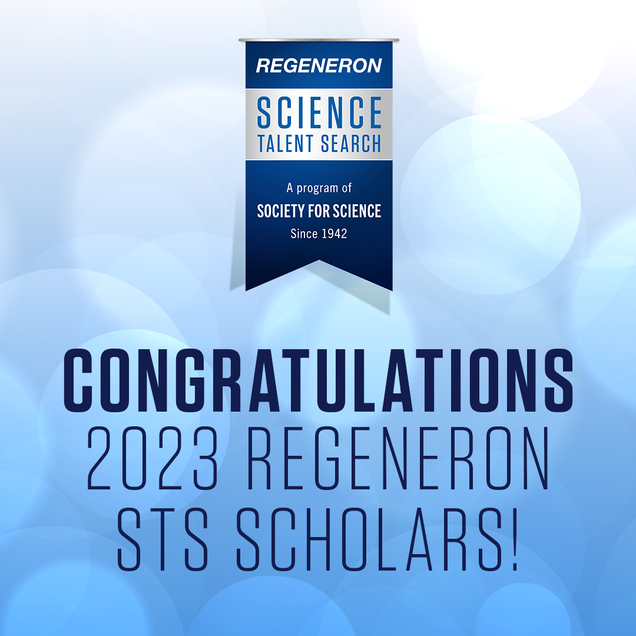
Three BUA Seniors Selected as Top 300 Scholars in 2023 Regeneron Science Talent Search
 Three seniors at Boston University Academy -- Alex Jin '23, Alvin Lu '23, and Joseph Wang '23 -- were selected as top 300 scholars in the 2023 Regeneron Science Talent Search, the nation’s oldest and most prestigious science and math competition for high school seniors. BUA is one of the few high schools to have three scholars named in the top 300 list.
Three seniors at Boston University Academy -- Alex Jin '23, Alvin Lu '23, and Joseph Wang '23 -- were selected as top 300 scholars in the 2023 Regeneron Science Talent Search, the nation’s oldest and most prestigious science and math competition for high school seniors. BUA is one of the few high schools to have three scholars named in the top 300 list.
The top 300 scholars were chosen “based on their outstanding research, leadership skills, community involvement, commitment to academics, creativity in asking scientific questions and exceptional promise as STEM leaders demonstrated through the submission of their original, independent research projects, essays and recommendations,” according to a press release issued by the Society for Science, the sponsor organization of the Regeneron Science Talent Search.
Each student’s winning project forms the basis of their senior thesis, an independent research project that is the culmination of a student’s academic career at BUA. Alex, Alvin, and Joseph share details of their research, below.
Alex Jin’s project, titled “A SEIRD+V Model for the Effect of Vaccination and Social Distancing on SARS-CoV-2 Infection and Mortality,” creates an epidemiological model and metric to guide public policy in the face of future pandemics:
“Respiratory viral pandemics have occurred repeatedly over recent decades, including Severe Acute Respiratory Syndrome Coronavirus (SARS-CoV-1) in 2002-2004, H1N1 influenza in 2009, Middle Eastern Respiratory Syndrome Coronavirus (MERS-CoV) in the 2012 and again in 2019, and SARS-CoV-2 since 2019. While attempts at preparedness have been made, public health infrastructure in multiple countries have been inadequate to meet the challenges of the SARS-CoV-2 pandemic.
Modeling epidemics allows for quantifiable, anticipatory planning prior to pandemic occurrence and for policy adaptation during a pandemic itself. I created an epidemiological model (SEIRD), including vaccine efficacy, the vaccination rate of the population, degrees of social distancing, and a thresholding metric to understand the stringency required from these parameters to achieve a pre-specified target for peak infection percentage and total mortality in a population. For example, if policy makers aim to limit peak infection rate in a community to 5%, what goals should they have for vaccination rate, social distancing, etc.? This study advances knowledge in its representation of multiple public policy tools in an integrated analytic model and in its flexibility to allow modification of critical parameters to achieve utility for future pandemics.”
Alvin Lu’s project, “Dynamic Genome-Scale Metabolic Modelling Reveals Optimal SARS-CoV-2 Resource Partition Ratio,” develops a novel framework that simulates virus-infected cell metabolism to predict potential drug targets. Alvin undertook his research under the guidance of Daniel Segrè, BU Professor of Biology, Bioinformatics, and Biomedical Engineering and leader of the Segrè Lab in BU’s Department of Bioinformatics. Alvin explains:
“Unlike previous works, this model is able to evaluate changes over time and partition resources, enabling both the virus and the host to compete and grow together. We evaluated the effect of this partition and determined that there was a ‘virus-optimal partition,’ the percent of resources allocated to the virus that generates the most production of virions.
We tested this framework on a lung cell model and integrated a new reaction to simulate virus production, accounting for lipids as well as proteins. We prove that this change significantly alters the host cell’s metabolism and provides two new drug targets. Finally, we confirmed our results by supporting them with values from pre-existing literature.”
Joseph Wang’s project is titled “Study of Behaviors of Bilinear Forms Under Field Extensions.” He shares:
“Motivated by a theorem of Riess, we studied the behavior of nonsingular bilinear forms under field extensions. In particular, given a base field k, we explore if a property that is called Bk in this article is preserved by field extensions. Riess’s theorem shows that under some mild conditions, the property Bk is preserved for field extensions C/R and R/Q, giving some insight into Beauville's weak splitting conjecture. We introduce new ideas to show that, under mild conditions, the property Bk is preserved under any field extensions, so long as k is an infinite field."
***
A total of 1,949 students around the country entered the competition this year; the top 300 scholars represent 194 American and international high schools in 35 states and China. In recognition of this achievement, each scholar will each receive $2,000. BUA will also receive $2,000 per scholar to fund STEM activities at the school. Alex, Alvin, and Joseph join BUA alumna Zoe Xi '22 in the of pantheon of recent BUA Regeneron Science Talent Search scholars. Zoe's project, entitled "Approximation Algorithms for Dynamic Time Warping on Run-Length Encoded Strings," was selected as a top 40 project in the 2022 competition.
The top 40 2023 Regeneron Science Talent Search finalists will be announced on January 24.
BUA Athletes Win All-Scholastics Honors
Boston University Academy student athletes earned All-Scholastics honors in the MBIL league for cross country and soccer in the fall 2022 season. Congratulations to the athletes on these well-deserved accolades. Go Terriers!
- Boys' Soccer MBIL All-Stars: Dominic Iafrate '23, Isaac Rajagopal '23, Ajay Raman '23, Nick Reason '23
- Girls' Cross-Country MBIL All-Stars: Sally Jamrog '23, Coco Mueller '26, Giselle Wu '23
- Boys' Cross Country MBIL All-Star: Nicholas Kennedy '26
You can find a complete list of 2022-2023 All-Scholastic athletes in the Boston Globe's All-Scholastics section.
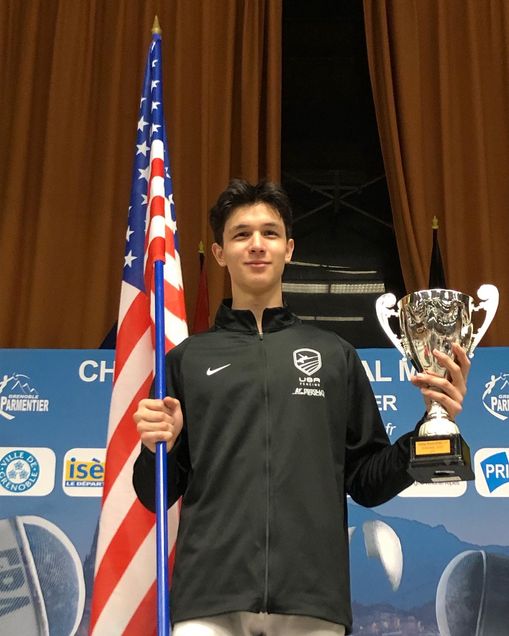
BUA Junior Wins World Cup in Épée Fencing
BUA junior Luka Loncar, '24, won the World Cup in épée fencing in the 16-and-under men's division at the Cadet European Cup in Grenoble, France earlier this month. Over 200 fencers from 12 different countries competed in his division, and Luka's is the first win by an American fencer in six years. Luka fences with the Olympia Fencing Club in Cambridge, MA.
Congratulations, Luka, on this impressive accomplishment!
“Boston in the Diasporic Imagination” Senior Seminar Visits Murals in Roxbury
Dr. Carlos Martinez's “Boston in the Diasporic Imagination” Senior Seminar took a field trip to see murals in the Roxbury neighborhood of Boston. These murals were mentioned in Zadie Smith’s novel On Beauty, which the class is currently reading.
The "Boston in the Diasporic Imagination" class relishes in some of Boston’s rich immigrant history as they delve into academically acclaimed, recent literature by and about people who have all found themselves in this great city. Originally a term referring to the exile of various Jewish populations, Diaspora can refer to people who have been forced to leave their home countries because of oppression, but it can now also refer to emigrants who have chosen to leave their countries for a variety of reasons. These people have sacrificed everything they’ve known and loved in the hopes of bettering their fates and that of their families and ancestors.
Dr. Martinez shares:
"In these texts we find characters trapped between worlds, trying to negotiate forces that are pulling them between authentic and constructed selves. Zadie Smith’s foray into Boston life is a particularly interesting one. Writing as an outsider, since she is not from the area nor has she seemed to spend any significant amount of time here, Smith nonetheless taps so well into some real struggles facing our city, using the backdrop of segregated spaces in Boston to add such an interesting dimension to her narrative. I think I can speak for the class when I say that it was such a transformative experience to find this incredibly thought provoking art literally on the sidewalks so close to our school, and I am so grateful to Ali Holman '23 for spearheading the trip and for his work with Gabriel Romauldo '23 to provide researched contextualization for our journey."
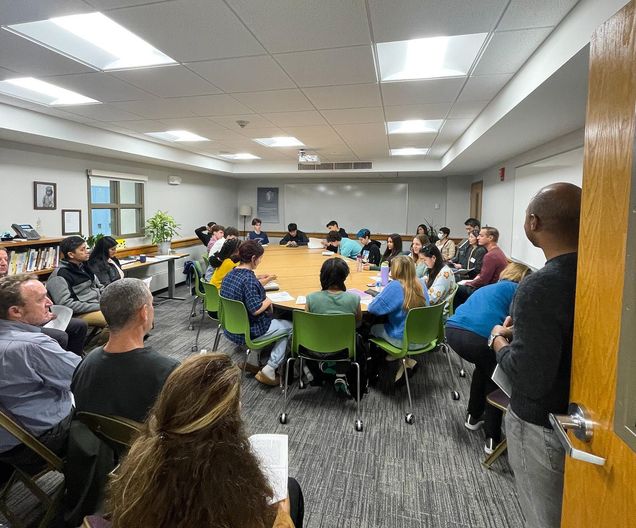
HOS Blog: Parent-School Partnership and the Three-Legged Stool
“Can I come back and go to school here?”
I heard this question a few times on Tuesday from those who joined us for Parents and Guardians Day. For several hours that morning, adults in our community walked through their children’s class schedules, sitting in on actual math, science, language, history, arts, and English classes right alongside our students. Some of the adults even participated – in some cases to the embarrassment of their teenage onlookers!
The feedback was heartwarming. “I can’t believe how active and engaged these kids are. That’s not what high school was like for me.“ “The teachers are so creative; each classroom felt different.” “I feel so lucky that my son is surrounded by other kids who are as curious and bright as he is. He’s learning so much from them and is making friends for life.” “You’d think these kids are in college based on the sophistication of the discussion and analysis.” “Classrooms felt so safe – good places to make mistakes.” “The teachers found ways to make the material feel relevant and real.” “I hear about all this at home, but I didn’t really understand it until coming in and seeing it for myself.”
Days like this are unusual in schools. It’s typical for parents and guardians to visit with teachers to hear about their courses and to meet with advisors one-on-one, both of which we do. The reason BUA takes this extra step – opening up our classrooms to the adults in our community – is that we believe it helps our students. Great schools understand the importance of the three-legged stool in secondary education: student-parent-school. Seeing what a day feels like – the expectations, environment, pace – puts parents and guardians in a better position both to support students at home and to partner with the teachers, advisors, and staff. It’s part of how we execute on our promise to know and love each child. For all of you who joined us, thank you!
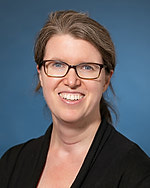
Dr. Magdalena Slosar-Cheah Receives Inaugural BUA Distinguished Alumnus/a Award
 Boston University Academy's Alumni Council is honored to present the inaugural Distinguished Alumnus/a Award to Magdalena Slosar-Cheah ’99 for her work in the field of infectious disease. The award celebrates an alumnus of the school who best exemplifies BUA’s values and makes an impact on the community and world around them.
Boston University Academy's Alumni Council is honored to present the inaugural Distinguished Alumnus/a Award to Magdalena Slosar-Cheah ’99 for her work in the field of infectious disease. The award celebrates an alumnus of the school who best exemplifies BUA’s values and makes an impact on the community and world around them.
Dr. Slosar-Cheah grew up in Massachusetts, daughter of a puppeteer and an architect and the oldest of three sisters. After graduating from Boston University Academy in 1999, she obtained her BA in physics at Yale University, where she also enjoyed taking classes in medical anthropology, modern literature, and Anglo-Saxon, and her MD from the medical school at the University of Massachusetts (now UMass Chan). She subsequently completed her internal medicine residency at New York-Presbyterian/Weill Cornell in Manhattan followed by a fellowship in infectious diseases at Montefiore/Einstein in the Bronx.
Upon completing her medical training, Dr. Slosar-Cheah continued to work at Montefiore for six years as an attending physician in infectious disease, where she saw general infectious disease consults, cared for a panel of patients living with HIV, and helped expand hepatitis C treatment into primary care. In addition, she ran the second year microbiology course for medical students at Albert Einstein College of Medicine for two years.
After 11 years in New York City, Dr. Slosar-Cheah moved back to Massachusetts in 2019 to take up a faculty position as Assistant Professor of Medicine in the Division of infectious diseases and immunology at UMass Chan Medical School/UMass Memorial Health, where she continues to see patients and serves as program director for the infectious diseases fellowship. During the pandemic, Dr. Slosar-Cheah managed the hospital COVID-19 team, shaped hospital policies, and treated COVID-19 patients.
She is also a wife to a fellow physician, the mom of a kindergartener and a toddler, an aspiring gardener, and is currently pursuing a master’s degree in the history of medicine. Dr. Slosar-Cheah reflects on the significance of being the first recipient of the BUA Distinguished Alumnus/a Award:
"It is such an unexpected honor to receive the BUA Distinguished Alumna Award. My time at BUA was so formative – the source of vivid experiences, memorable and inspiring teachers, and lifelong friendships. I remember that time fondly – many of the books we studied still sit on my shelves at home and many passages from those books continue to sustain me in difficult times. And yet, though I am grateful for the solid academic foundation, what has stayed with me most strongly is the combination of enthusiasm, curiosity, reverence, and irreverence that was nurtured by my teachers and by my classmates. I hope to carry that spirit forward and am grateful for this opportunity to reconnect with the school that has had such a lasting impact on me."
We look forward to welcoming Dr. Slosar-Cheah back to campus this year to celebrate her accomplishments.
54% of BUA Senior Class Receives National Merit Recognition
An impressive fifty-four percent of the Boston University Academy Class of 2023 received recognition in the 68th annual National Merit Scholarship Program competition.
Twenty current BUA seniors were named National Merit Commended Scholars. They are among the roughly 34,000 US seniors recognized for "exceptional academic promise," and place among the top 50,000 students who entered the competition by taking the 2022 Preliminary SAT/National Merit Scholarship Qualifying Test (PSAT/NMSQT).
Out of these 20 Commended Scholars, two BUA seniors were named National Merit Semifinalists, placing them among the top 1% of all US high school seniors who entered the competition. Semifinalists will have the opportunity to compete for one of 2,500 National Merit $25,000 Scholarships. National Merit Scholar finalists will be announced in February of 2023.
Two members of the BUA Class of 2023 received College Board National Recognition Program honors by scoring in the top 2.5% of PSAT/NMSQT test takers who identify as African American, Hispanic American, Latinx, or Indigenous.
Congratulations to all of BUA’s honorees on this well-deserved recognition!
Alums Want to Help
On the evening of September 29, in what promises to be a wonderful tradition, seven graduates who identify as people of color joined two dozen current students of color for dinner and conversation, with the aim of sharing their experiences, building connection, and moving our community forward in terms of belonging. Several dozen alums began their months-long volunteer work as admission interviewers this week. Over the course of the admission cycle, they will collectively meet with more than 100 prospective BUA students and families. Twenty-four graduates from 1997 to 2016 will come together this weekend for the first Alumni Council meeting of the year to plan alumni events and offer feedback on the school’s emerging strategic vision. Plans are in place for several alumni career panels and all-school meetings where graduates will share their stories with current students and offer models of lives well lived. The list goes on.
Many are in early stages of their careers, working hard to establish themselves. Many have young families. All are busy. And they all choose to carve out time to volunteer with their old school.
I have talked to four dozen BUA graduates one-on-one since my start at BUA to hear their stories and ask for advice, and have met many more at events along the way. I often ask what the school can do for them. Their answer – nearly always – is that we can open doors for them to be part of and contribute to the life of the school that was critical to their development – a place where they learned how to read deeply and think critically; where they “found their people” and could be themselves; where they encountered adults who have become lifelong mentors. So many graduates want to give back to make sure that experience is available to the next generation and simply show gratitude for the experience they had. And we are better for it.
A mentor once told me that “a school can only be as great as its graduates want it to be.” If that’s true, and I believe it is, that is a very good sign for BUA.
